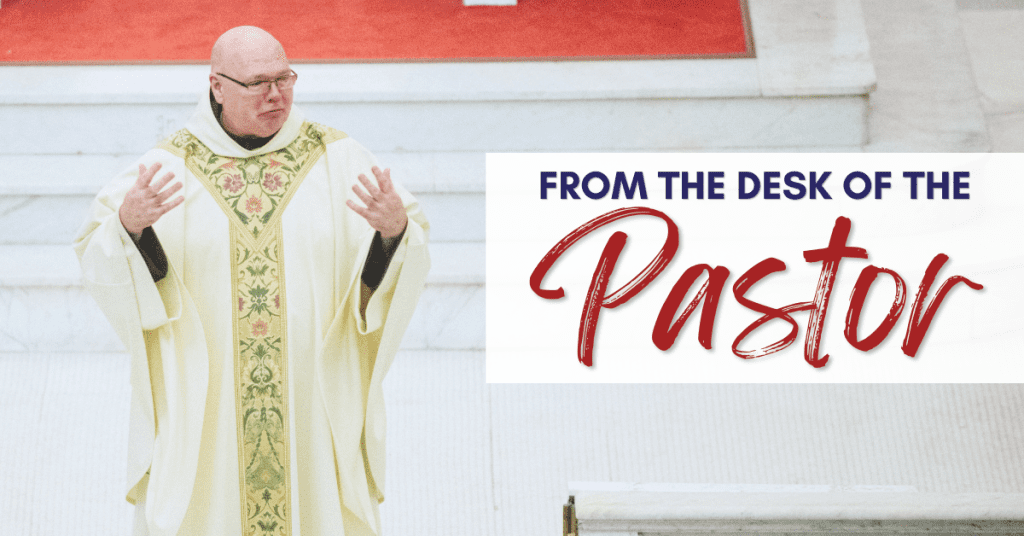
Dear Parishioners,
Back in May, 1984 my father was running for the local school board. He was initially elected in 1969 and had served on the board ever since. He had instructed the family to vote, of course, and to tell our friends to vote as well.
Election day came and I was running late for work didn’t have the time to go vote. After work, I met up with some friends and one of them asked me if I’d had the chance to vote, and I admitted I hadn’t. She looked at me and said “you haven’t heard? Your dad’s race ended in a tie.”
They had to have a special election in June. I didn’t miss heading to this polls on this day, however, my father lost that election. The next year, he regained his seat on the board, and would serve for another 17 years, until 2001/2002, a total of 32 years.
While we are well into election season, I would make the following recommendations. Mind you, these are not my thoughts for any specific race or issue, but ways to consciously and deliberately discern your own choices:
1. Bring your discernment to prayer. | St. Paul says: Put on “the mind of Christ” (1 Cor. 2:16). Take time away from social media and spend time with Holy Scripture and the Blessed Sacrament. Turn off the TV or the podcast, and listen in silence. Volunteer at a soup kitchen, a homeless shelter, a crisis pregnancy center. Serve the poor, the needy, the outcast. Pray often, letting faith inform your political participation. Participation in political life also requires judgments about concrete circumstances. While the bishops help form the laity in accordance with basic principles, they do not tell the laity to vote for particular candidates.
2. Follow your conscience. | On complex matters, it is the laity’s responsibility to form their consciences and grow in the virtue of prudence to approach the many and varied issues of the day with the mind of Christ. Conscience is “a judgment of reason” by which one determines whether an action is right or wrong (Catechism of the Catholic Church, no. 1778). It does not allow us to justify doing whatever we want, nor is it a mere “feeling.” Conscience—properly formed according to God’s revelation and the teaching of the Church—is a means by which one listens to God and discerns how to act in accordance with the truth. The truth is something we receive, not something we make. We can only judge using the conscience we have, but our judgments do not make things true.
3. Be respectful of others. | We do not all share the same opinions. Let us be respectful of other people’s opinions in our words and actions. Never let evil talk pass your lips; say only the good things men need to hear, things that will really help them. Do nothing that will sadden the Holy Spirit with whom you were sealed against the day of redemption. Get rid of all bitterness, all passion and anger, harsh words, slander, and malice of every kind. In place of these, be kind to one another, compassionate, and mutually forgiving, just as God has forgiven you in Christ (Eph. 4:29-32).
4. Vote.
Peace and All Good,
– Fr. Mike
Portions of this text were approved by the body of U.S. bishops in November, 2023, as noted at www.faithfulcitizenship.org. © 2023, United States Conference of Catholic Bishops, Washington DC. All rights reserved.




